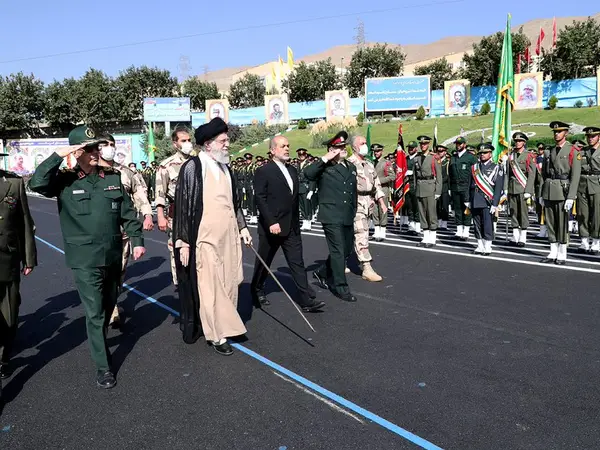State media quoted Iran’s ruler Ali Khamenei as saying that protests were planned and not staged by "ordinary Iranians", in his first reaction to ongoing unrest.
Khamenei’s reaction calling protesters “rioters” and praising security forces are similar to his comments about anti-government protests in the past, such as in January 2017 and November 2019, when security forces killed at least 1,500 people.
The aging 83-year-old Khamenei who has ruled for 33 years, said, “I am saying explicitly and clearly, riots and insecurity was planned by America and the usurper, fake Zionist regime.”
In fact, protests began in mid-September after a 22-year-old woman, Mahsa Amini was killed by heavy blows to her head while in the custody of hijab police. Her death first led to protests in her native Kurdish region of western Iran and then reached the capital Tehran and other cities two days later.
As happens often in Iran, officials tried to portray her death as the result of illness, and no one has been held responsible after the initial incident on September 13.
Khamenei’s reported appearance Monday at a ceremony came after his two-week total absence from the scene that had led to speculations about his health. He had been reported to be unwell even before the protests.
Although state media extensively quoted Khamenei and published a few photos of the ceremony, no video was released, which could have presented a more solid proof of his health status.
Before his appearance on Monday, some activists on social media were commenting that Khamenei’s supporters might be wondering where their leader is. But Iran’s ruler in the past has often waited to see if his forces are on the verge of victory before showing up and condemning the protests. This time he apparently could not wait any longer.
Protests in nearly 100 cities and towns in the past two weeks have been met with violence by security forces and 133 protesters have been confirmed dead by a human rights group, but so far, the government has not used overwhelming military force to kill demonstrators.
Most of the anger during the protests has been directed at Khamenei himself, with frequent chants of “Death to the dictator” and “Death to Khamenei”. He is seen as presiding over a pyramid of repression by clerics and the loyal Revolutionary Guard, with endemic corruption everywhere in the government.
Khamenei on Monday also praised security forces and cadres loyal to him, although he also pretended that the Iranian people oppose what he described as a conspiracy to foment protests. He also repeated unfounded allegations by his loyalists that protesters “burned Qurans”, forced women to take off their hijab and attacked mosques.
Khamenei also said that Mahsa Amini’s death was an excuse and even if she had not died “they would have created another excuse…to sow insecurity in the country.”
While the United States and many other countries have condemned Mahsa Amini’s death as well as discrimination and violence against women in Iran, Khamenei dismissed the criticism. He also dismissed US statements that Washington has no intention of attacking Iran or changing the regime.
“Plotting and actions by the enemies show their real self. The same enemy that in diplomatic remarks says we have no intention to attack Iran or to change its regime…pursue plots to create riots,” Khamenei said.
